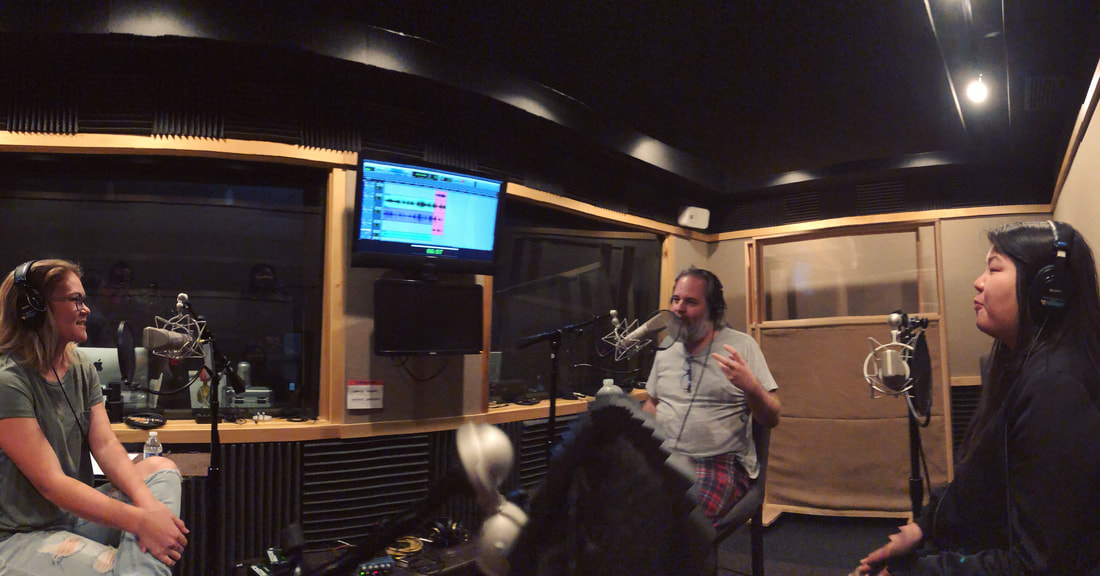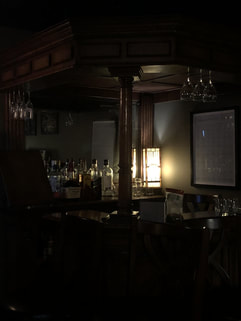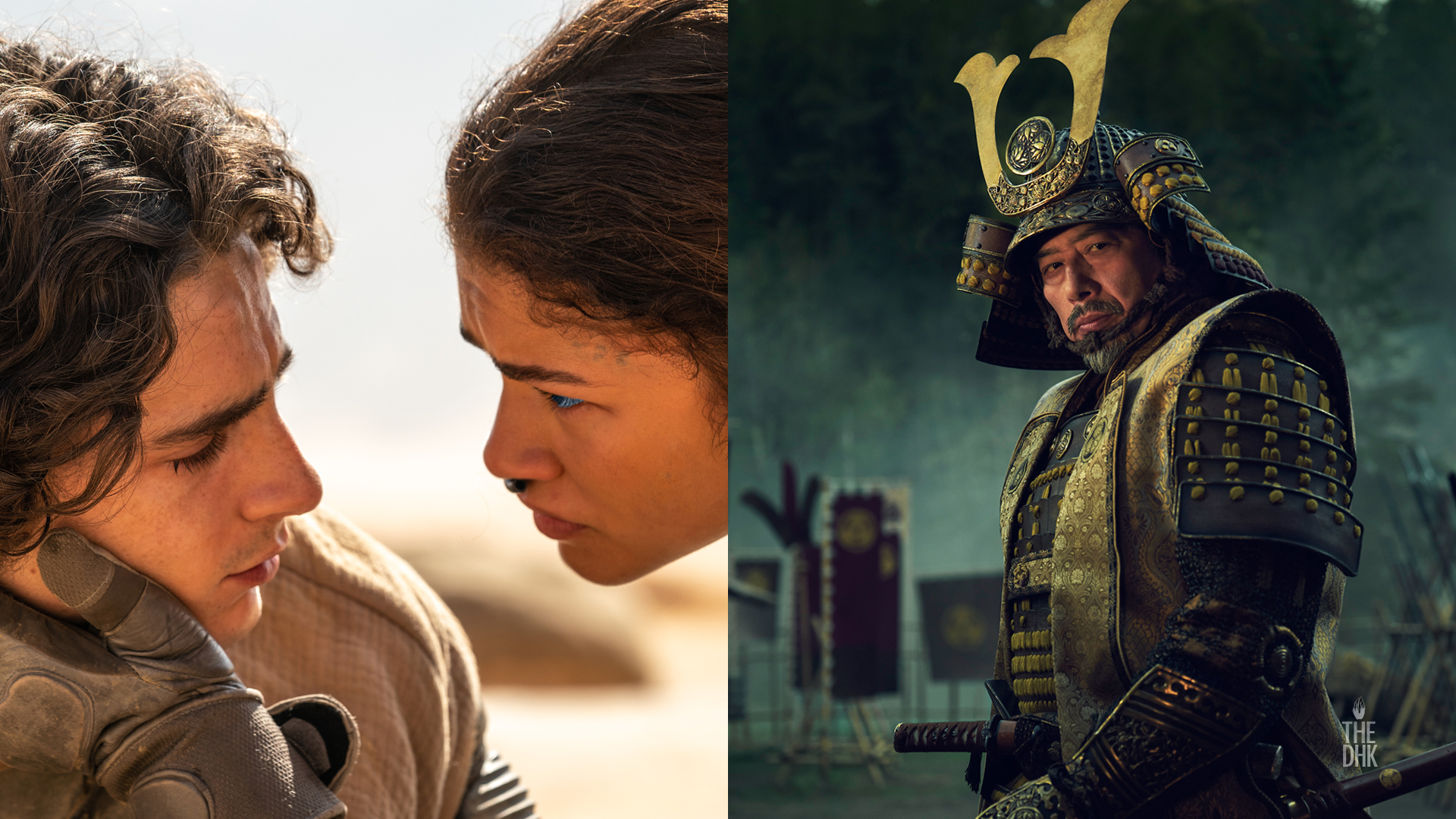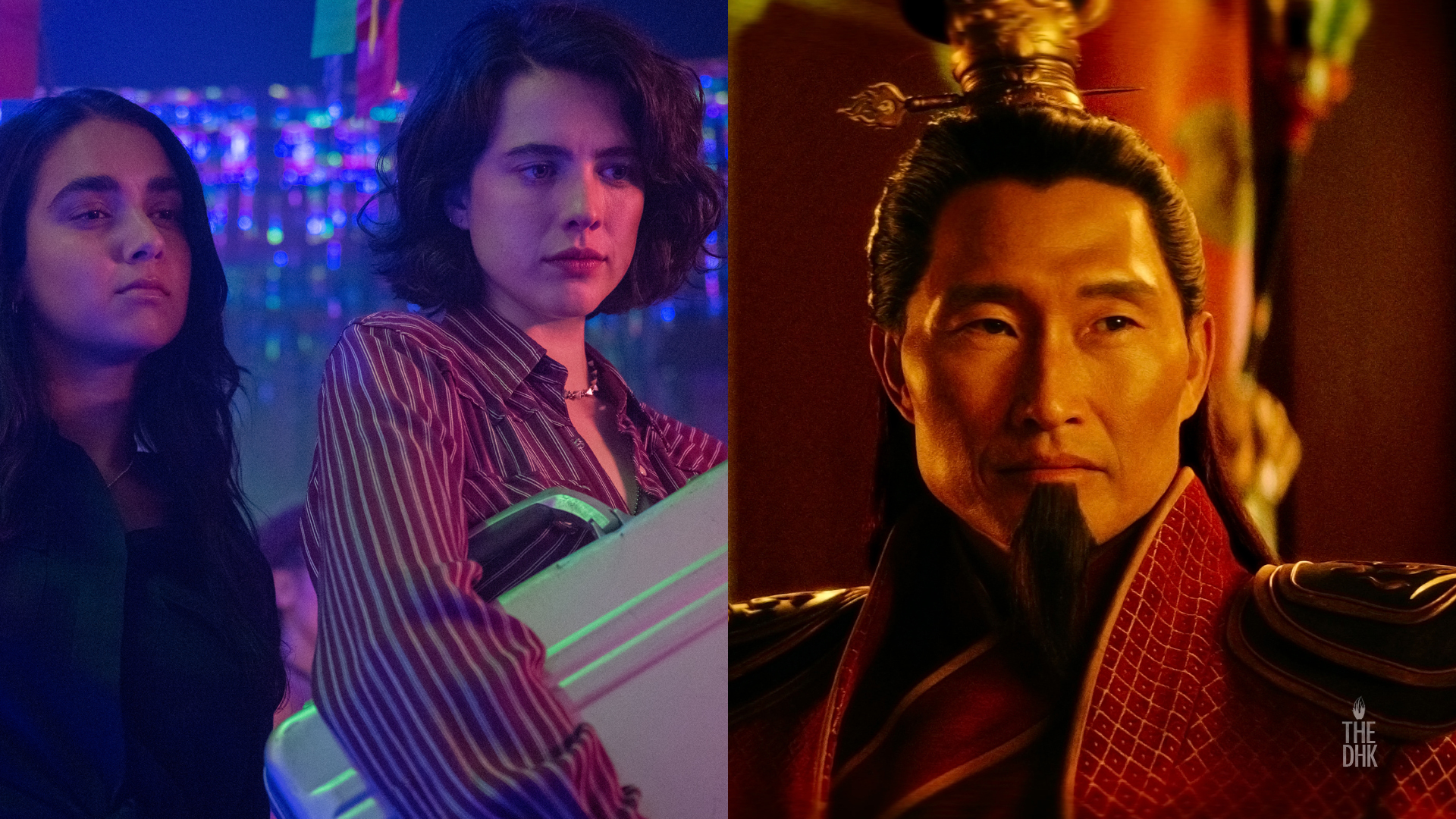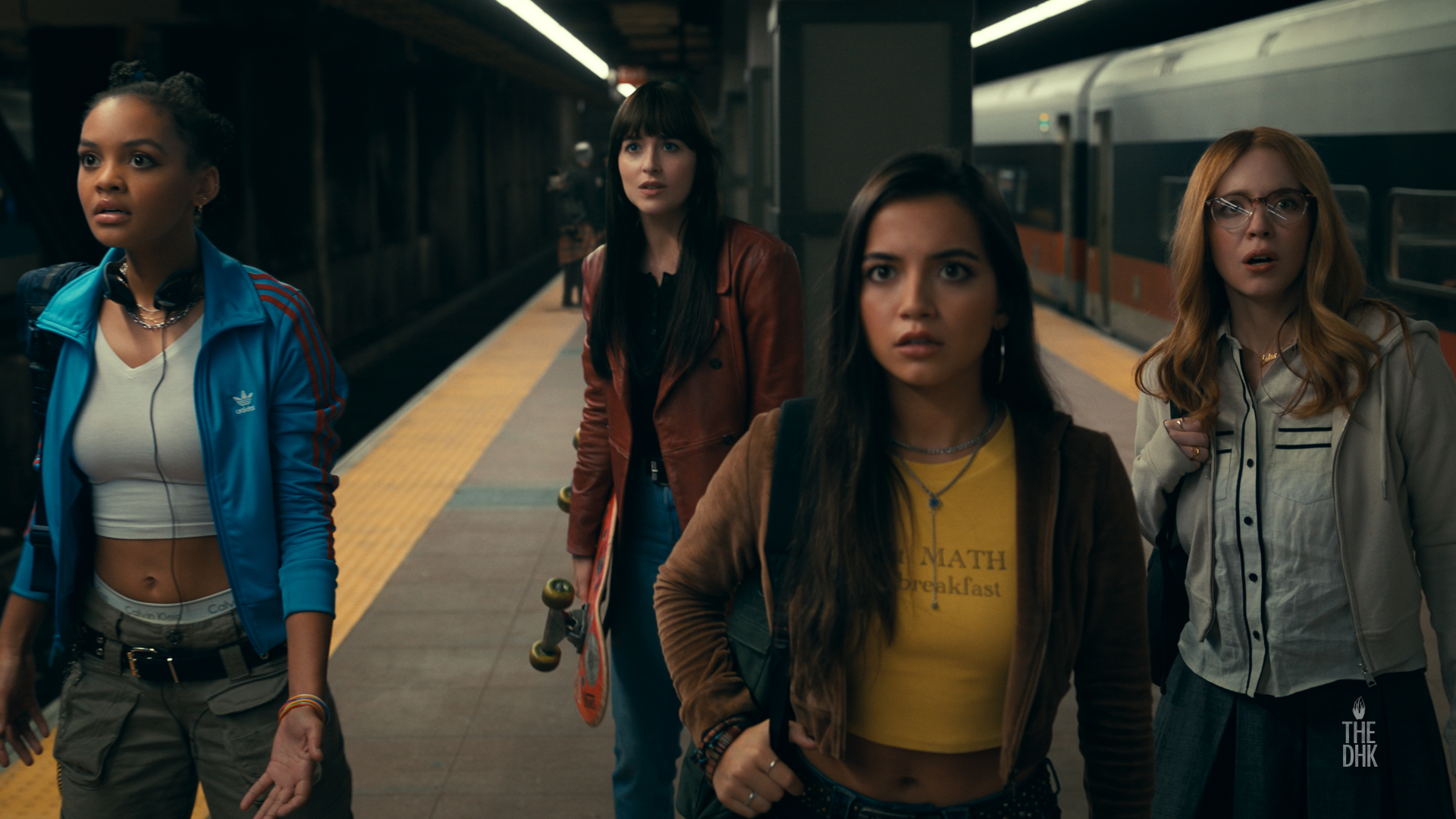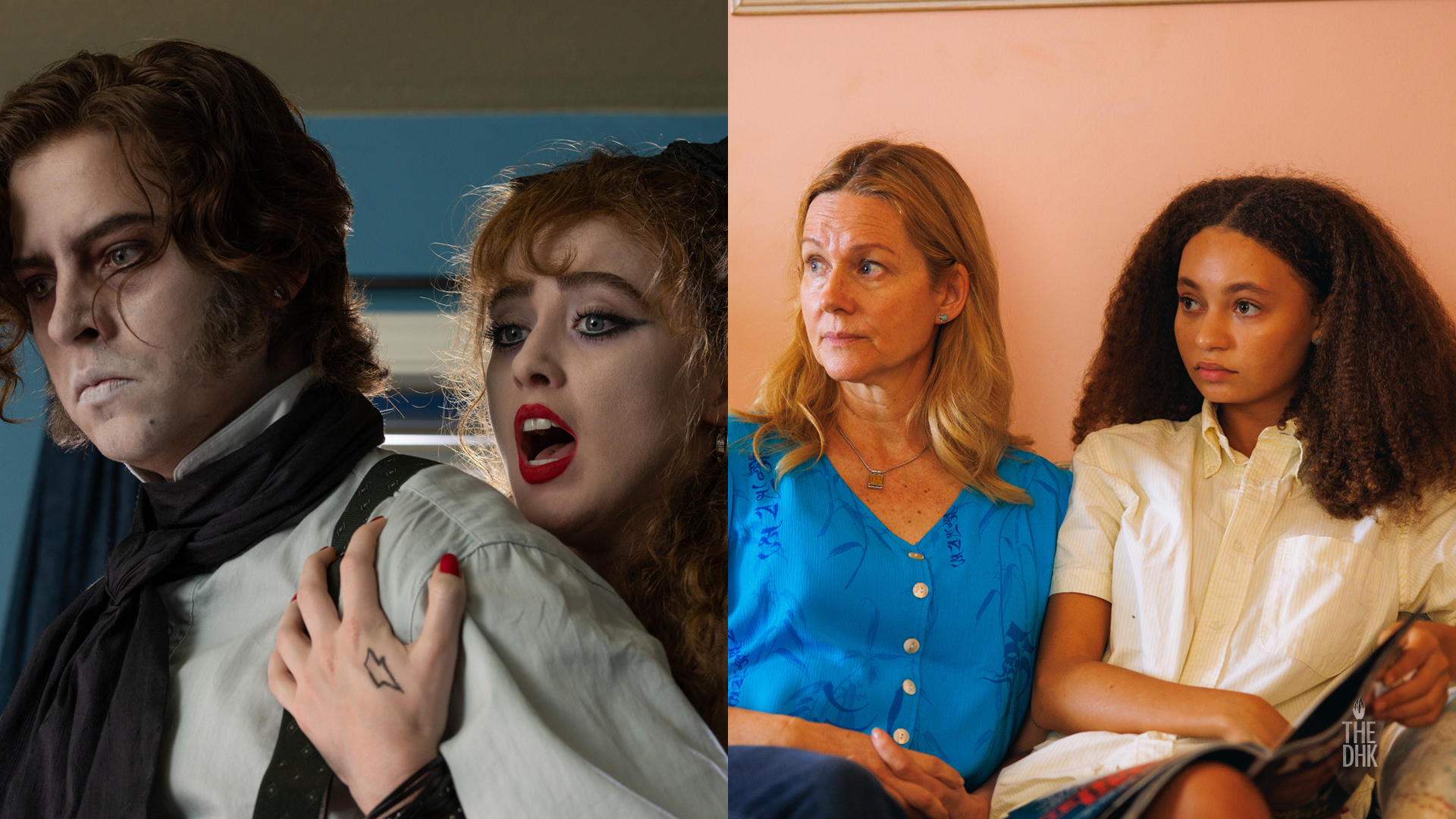When he wrote those words I don’t know if he realized they’d become (at least for me) a personal anthem that haunts me constantly. Any time I’m forced to listen to or watch or edit (which is surprisingly often in this digital age) an opportunity when I feel I could have represented myself better, those bitter lyrics float into my head.
So what happens when you layer onto that feeling a responsibility to represent an entire race or gender? And you feel you botched it up?
Jessica also happens to have a podcast called Whiting Wongs where she discusses two of my favorite topics: race and representation. Her co-host is Rick and Morty co-creator and Community creator Dan Harmon (who strangely I have also interviewed). The stars happened to align timing wise where they were recording Whiting Wongs right after Jessica and I had finished our interview, and they were gracious enough to invite me on.
It’s one of those scenarios where I feel I let not only my generous hosts down, but myself, my fellow guest (Larissa Pruett, who candidly shared a story of racism – that though it may not have had malicious intent, still affected her negatively – that she’d been subject to), my gender, and people of color everywhere. The last two might feel a little self important, but I look at it as I had the opportunity to be a representative of both those checkboxes – in a relatively public forum. And I didn’t conduct myself as I’d have hoped.
|
It’s a hard thing to talk about something so personal in a public setting. I commend Jessica and Dan for doing so with candor and earnestness. Also while they may ramble (and sometimes drink) during recording, they have it down to an art. Like I said they’re smart cookies.
Now here’s the issue I also am grappling with: if I’d been a white, cisgender, straight man, would I be grappling with any of these feelings of guilt? Probably not. Or at least not to the extent I’m feeling now. Which ironically all goes back to the problem I particularly wanted to address during our discussion. So while I only had one shot on air, I’m taking one opportunity to elaborate on that topic now! |
I end up worrying that they’ll have a long lasting negative experience from it, and it’ll disadvantage future women who have to work with them. If I feel I’ve wronged someone in a personal setting – I worry about the person forming incorrect opinions based on my race or gender. It might sound absurd but I don’t think that’s limited to just my experience. Basically I’m constantly worrying about how other people will interpret my actions or words. While some of that is just… being a considerate human being… there’s an additional weight that many people have to carry.
We also touched on code switching and what it’s like to live between two worlds. We got to it at the very end and I think what I was having trouble saying on the spot (and now that I’ve had time to reflect I can say now) was: I often feel like I don’t belong to one group or another (meaning Asian or Caucasian in this scenario) which is because I don’t.
If I’m in a group of predominantly Asian or Asian-American people, I sometimes struggle with feeling like I belong because I don’t feel “Asian” enough. It’s worth pointing out I come from a Chinese family so I’m primarily referring to trying to fit into that experience. I don’t speak Mandarin (or any other dialect or other Asian language) super well. This is in spite of years of studying Mandarin, and not being fluent is one of my biggest regrets. I grew up in a house where no one could cook anything (my mom once burned water) and was quite frankly a picky eater, so there are only a few Chinese dishes I TRULY enjoy. I have been to China a considerable amount, though haven’t been in a while. Yet if I see a film or tv show where China has taken over and not necessarily in a bad way, I find myself immediately making the joke “good thing I’m one of them!”
I don’t think it’s ever gone the other way where I go out of my way to go “oh no but I’m half white!” or even “oh no but I’m American.” Usually when I feel like I’m trying to go the extra mile to prove I’m part of a group, it’s trying to prove that I’m legit Asian (or at least part). I never find myself trying to distance myself from that part of my heritage, only to try to become closer to it.
But I’m not truly Asian, not fully. Nor am I truly Caucasian. Jewish in particular. I also didn’t go to Hebrew school (another regret), we didn’t observe the more serious Jewish holidays, I’m definitely illiterate when it comes to Hebrew, and I only know a few phrases in Yiddish. Yet if I hear someone saying anything negative or incorrect (to the best of my knowledge) about Jewish people or culture I will swoop in immediately. I sometimes almost enjoy the element of surprise and shock when I go “Well actually IIII’MMMM Jewish and….”. That element wouldn’t be there if I didn’t LOOK like I shouldn’t be a part of that group.
And the more mixed and diverse the world becomes, the more I find I fit into a third/separate group. Hapa people. Hapa comes from hapa haole, which is a Hawaiian term for mixed. To the best of my understanding it primarily applies to white and Asian/Pacific Islander mix, but has evolved to encompass all sorts of half mix. It’s also like a secret code word, where hapa people get incredibly excited when they identify each other as such.
I don’t go around asking to represent women, or Asian-American women, or actually half Asian-American women/half Jewish women. But that is what I am, so I embrace it. So while I may have not represented any of those columns well on Whiting Wongs I also come out of it with a powerful lesson or reminder that the world state is still such that if you forget that that role, you may regret it. The best way I or anyone in a similar position can combat racism or sexism is to learn from these opportunities. Don’t squander a chance to have a conversation about the topic with a willing listener.
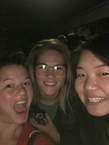 Larissa Pruett and Jessica Gao.
Larissa Pruett and Jessica Gao.
So huge thank you to Jessica for graciously taking the time to speak to me for Bleeding Cool, for having me on Whiting Wongs, for covering my ass on some of my inarticulate ramblings and actually being able to contextualize it. Thanks to Dan, Larissa, Steve Levy and Yusong Liu.
Also: a few pieces of advice if you ever somehow find yourself going on a podcast you’re a fan of…
- Maybe don’t come straight from drinking right before?
- If you aren’t friends with the hosts, but listen to them a fair amount – remember – YOU DON’T KNOW THEM PERSONALLY. I realized I was joking with them as if they were my friends (and not that they weren’t friendly and kind) but it doesn’t read if they don’t have the same level of familiarity with you that you have with them.
- Eat the microphone. I was way too far away from the mic for the first half of the podcast. I should have known better.
- Go to the bathroom before.
- If you are a minority or POC…. good luck, and know that others are rooting for you!
If you want to brave the episode you can find it here or on iTunes.
